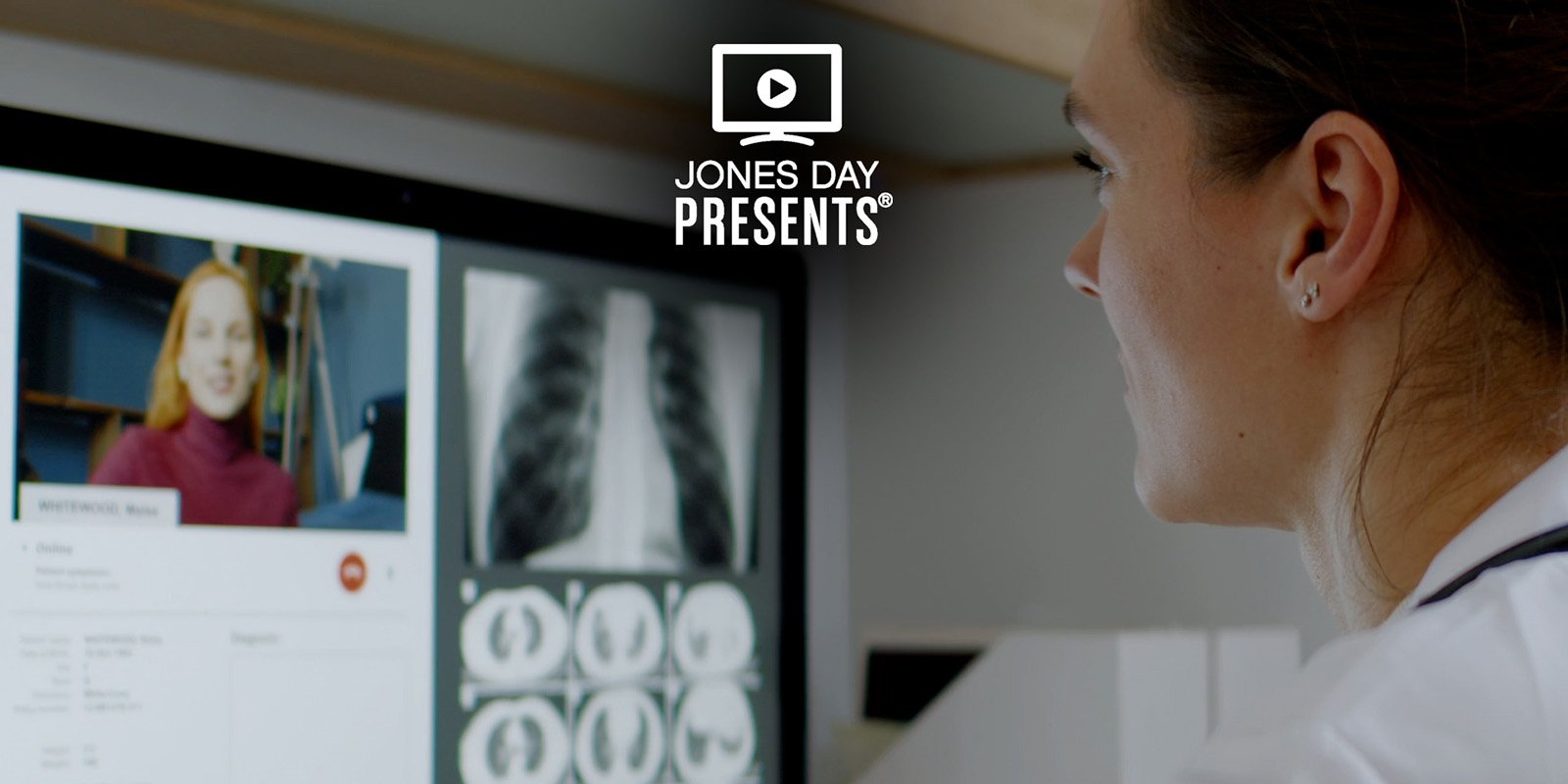
JONES DAY PRESENTS®: Tax Implications of Telehealth as Remote Services Become the Norm
As an integrated system of medicine, telehealth raises the potential for tax issues. Jones Day counsel Jennifer Waryjas explains why companies need to plan ahead and put strategies in place as they build and grow in this emerging area of medicine.
Read the full transcript below:
Jennifer Waryjas:
Sales tax matters in telehealth because it's a different type of medicine. It's an integrated system because you're not just taking a patient meeting with their doctor. You're now combining various components of that. Service in the sense of you have computer software, you have computer servers, you have user licenses, you have an app that is allowing the communication between that patient and their doctor. And then you have storage of digital records. You have doctors and administrators that can view things like x-rays and make determinations and provide guidance. That's not what medicine used to be, but that's where it's going and that's how it's shifted to this integrated service.
The integrated service model does bring up the potential for tax issues. Sales tax administrators may view certain components of what's being provided as a taxable product and a different component of that as a non-taxable service. That's why it's important to understand how each state that a company's doing business in will view those products as taxable, as not taxable, as combined or as separate. And they cannot be taken as a one size fits all approach. They have to be evaluated separately because different states do not take the same approach.
The end of the day, the money will come out of the company's pocket. If the company has not been collecting sales tax on products that the tax administrators deem to be taxable, it's not going to be the user that has to pay it's the organization. They're the ones that will have to come up with the cash that they had not anticipated. So by developing the structures and analysis as the company is building and is growing, it allows not only to prevent retroactive tax costs, but also to have better strategic planning for the future.


